The drug abuse in Kashmir has shown an alarming increase in recent years, with the experts warning of serious social concerns if the problem is not tackled soon. According to a United Nations International Drug Control Program (UNDCP) sponsored survey, Kashmir division alone had 70,000 drug addicts including 4000 women in the year 2008. The statistics issued by the lone drug de-addiction centre at Police Control Room (PCR) Srinagar reveal that in 2013, the centre has received 1441 drug addiction cases which are more than double (633) cases registered in 2012, clearly indicating that the menace is increasingly gripping the valley youth. For two decades, the people of Kashmir have endured the Pak sponsored militancy and the impact of this long-drawn conflict is now surfacing in the form of deteriorating mental health in the Valley along with a drastic rise in drug abuse and corresponding crime rate.
According to a recent survey entitled, “Community drug abuse study survey in Kashmir” by valley’s renowned psychiatrist Dr Mushtaq Margoob and his team asserted that there are 24.32 lakh substance abusers (including tobacco abusers) in Kashmir, which includes 2.11 lakh opioid, 1.37 lakh cannabis, and around 38,000 alcohol abusers. As per this study, around 35% of boys of very prestigious schools from 8th standard to 12th standard use these substances daily. It is a well known fact that in the last 10 years there has been an alarming increase in drug abuse and if this menace is not tackled in war footing, it may destroy the mental health of the present generation resulting in numerous other social problems.
Increasing drug use among women and girls in the Kashmir Valley has also been reported from time to time. According to an estimate, there are 4000 female drug addicts in the Valley where women taking drugs was previously unheard of. According to a survey conducted by a local NGO, which runs a de-addiction centre at Khanyar in Srinagar, Kashmir has around 4,000 female addicts. The survey was conducted under a United Nations Drug Control Programme (UNDCP). According to the survey, “The situation is alarming as the girls receiving higher education at the university or college level have fallen in the dragnet of drug addiction. Professionals including some medicos feeling frustrated after not getting jobs take to drugs so as to relieve the tension”.
Traditional drugs like opium and cannabis have always been part of the landscape. However, now the people particularly the young generation have turned increasingly to medical opiates. There is reportedly increase in sale of certain drugs. It has also been noticed that besides drugs commonly available at chemist’s shops, some addicts consume correction white fluid, fevicol SR, petrol, and nail paint thinner as drugs. Some addicts have started using glue sticks, liquid erasers and boot polish to avoid coming under any kind of scrutiny. As stated by some drug addicts themselves, “Cough syrups, proxyvon tablets and neurotoxic drugs are the most popular as they are openly available in the market,”.
Pakistan, along with sponsoring militancy in the state also seems to be supporting the drug smuggling and fake currency rackets in a big way. There have been major drug recoveries in the recent past in which Pak hand was clearly evident. Recently on 17 Jan 14, 114 Kg brown sugar was recovered at TFC Salamabad costing crores of rupees in the market . earlier also on 02 Aug 13, 10 Kg cocaine was recovered by Army at Sheri and followed by another recovery of one Kg brown sugar on 18 Sep 13 at Tangdhar. This was obviously smuggled to finance militancy and ruin the young generation of Kashmir so as to divert them to anti national activities. It is now a well known fact that most of the militants behind the previous suicide attacks were under the influence of drugs. More recently, drugs had led to an increase in crime, accidents and school dropouts. Children, as young as 12, are getting hold of drugs.
The government mental hospital, which in 1989 received not more than 2000 patients a year, is now being visited by close to 100,000 patients in the year. The center, which was started in 2008 by the local police, continues to be located inside the police headquarters in Srinagar. It has, so far, treated approximately 300 people – the majority on an out – patient basis and there is a waiting list of 350 persons, as per the police.
Taking note of the emerging threat to the social fabric of the society, the Army on 22 Feb 2014, inaugurated two Drug De-addiction Counseling Centres for the Awam in Srinagar and Baramulla. While dedicating two drug de-addiction Centres to the people of Kashmir valley, Lt Gen Gurmit Singh, Corps Commander Chinar Corps stated ‘We cannot afford to lose the young generation to drug abuse and addictions’. “Highlighting the adverse effects of drug abuse on individual and society, the GOC mentioned that people who persistently abuse substances often experience an array of problems, including academic, health, relationships, and involvement in accidents, theft and other criminal cases. Additionally, there are consequences for family members, the community, and the society as a whole. “It is our commitment to do our bit in helping the society in fighting this menace and bringing back our youth to main stream” declared the General. The two Drug de-addiction counseling centres will be located at Haft Chinar and Baramulla. These Centres can be contacted through the 24×7 helpline number 9419044550 and also through Social Media viz Facebook and Tweeter. Top dignitaries including Mr Gazzanfar Hussain, Commissioner-Cum-Health Secretary, Dr Rafiq Ahmed Pampori, Principal SNMC, Dr Saleem-ur-Rehman, Director Health Services, Dr Muner Ahmed Masoodi, Med Supdt, GB Pant Hospital, Dr Nazir H Chowdhary and Dr Md Khalil of Psychiatry Hospital, Dr Dildar Ahmed, CMO and Dr Mazzafar Khan, Dir, Drug De-addiction Centre, Police Control room, attended the inaugural ceremony. Speaking on the occasion, Dr Maqbool Dhar, HoD, Dept of Psychiatry, SNMC and Dr Saleem Khan, Associate Prof, Dept of Community Medicine, SNMC highlighted the menace of Drug addiction in the Valley. They appreciated the efforts of the Army in recognizing the magnitude of the problem and taking concrete steps in alleviating them.

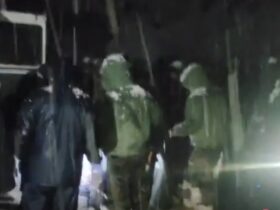
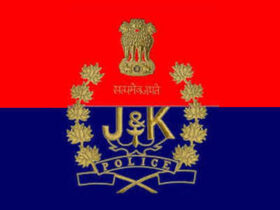
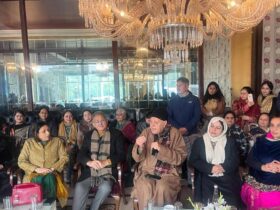
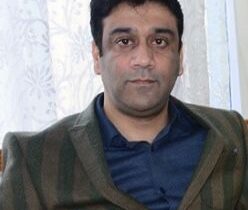
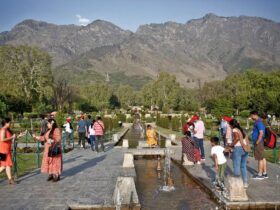
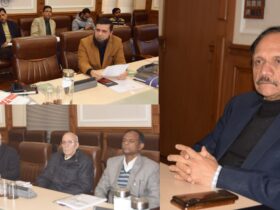
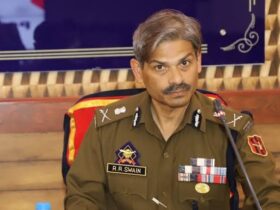
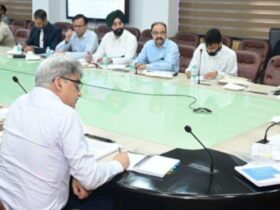
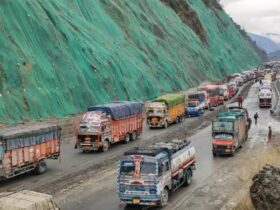
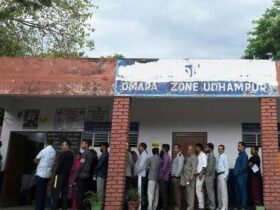
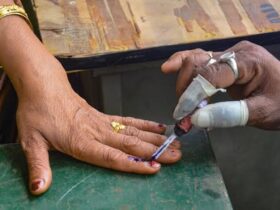
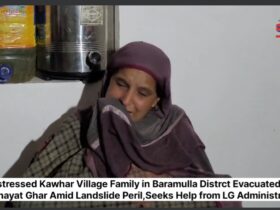
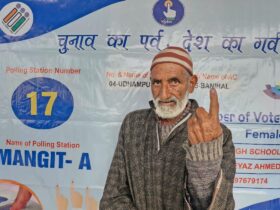
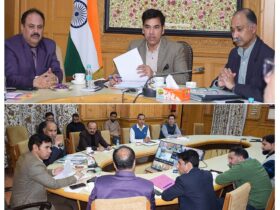
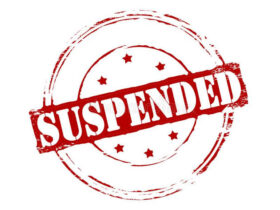
Leave a Reply